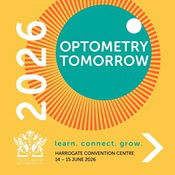Professional Matters Optometry & Dispensing
College submits response on review of Opticians Act
College of Optometrists submits response to the GOC review of the Opticians Act
The College of Optometrists has responded to the GOC’s call for evidence on the Opticians Act and consultation on related policies. This follows an extensive period of evidence review and member feedback, allowing the College to reflect the views of its members, and make a strong case that legislation and standards must enable optometrists to provide safe, high-quality care to all patients, now and in the future.
Sarah Cant, Director of Policy and Strategy at The College of Optometrists, says: “Thanks to the involvement of our members, we have been able to illustrate the profession’s views on the importance the Opticians Act and effective regulation to benefit patients. This is a vital opportunity for the College to help shape the future of safe, high-quality eye care, and the profession. We have highlighted the importance of effectively regulated primary eye care, in which eye health checks remain a vital part of sight testing, and the need for improved regulation in the context of new business models and technologies. We hope the GOC will continue to uphold the core elements of the sight test and will use our feedback to identify where standards or guidance could be improved, without additional regulation.”
The College’s key standpoints arising from its published response include:
- Testing of sight must remain a protected function of the Act that can only be performed by an optometrist or medical practitioner.
- We strongly believe that refraction should not be separated from the eye health check, to protect the public from avoidable sight loss.
- Refraction and the eye health check should be carried out by one individual, to ensure quality and safety of care, and therefore refraction should not be delegated.
- We recommend better training to all members of staff within an optical practice to ensure people in vulnerable groups are supported to use their appliances effectively, instead of legally restricting the sale and supply of optical appliances to additional groups of vulnerable patients.
- Selling optical appliances to children under 16 and those registered visually impaired should remain restricted to registrants.
- Registered, competent optical professionals must remain in control of clinical decision-making as they use new technologies and innovations.
- Standards of care provided remotely should be developed and be equivalent to those that apply to face-to-face care.
The College’s full response, covering all areas of the call for evidence, is available to view on the College website.
























